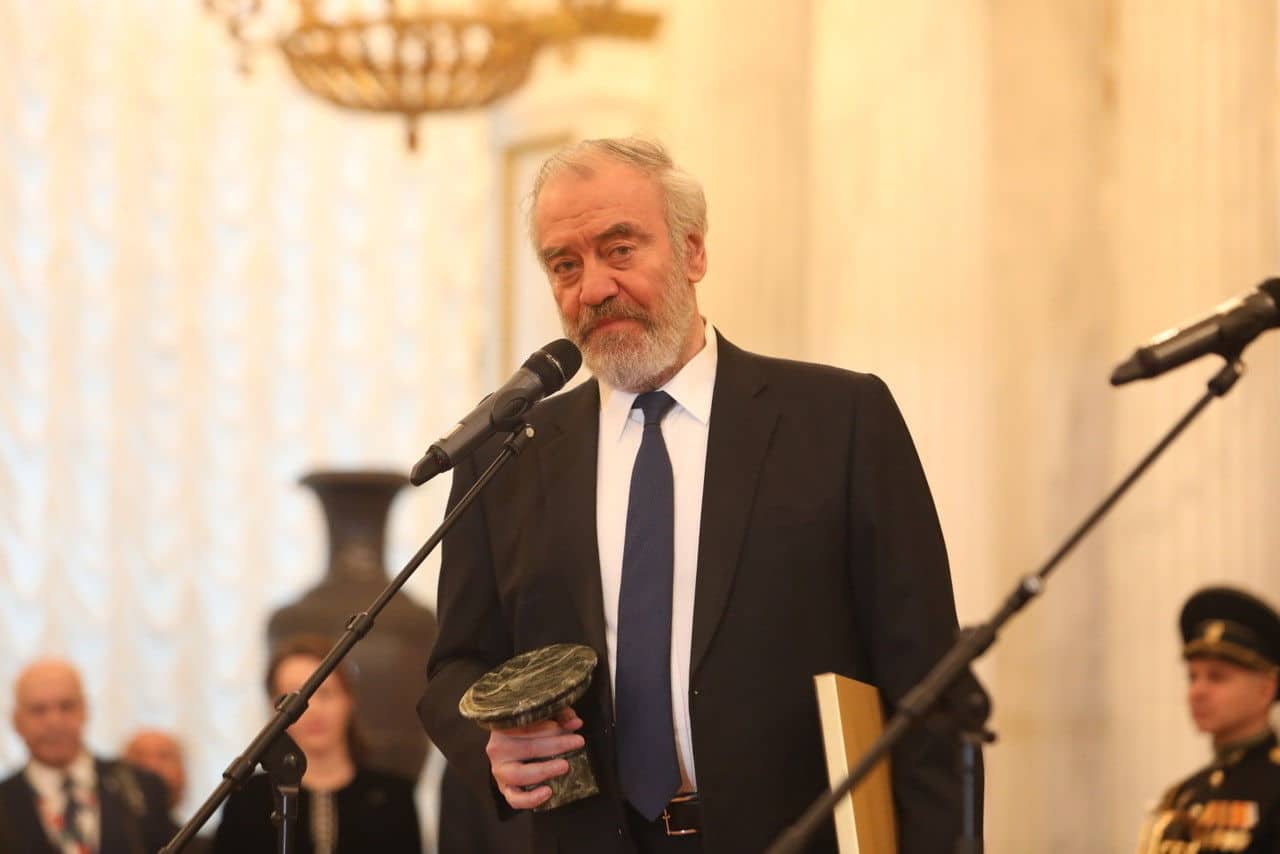Just in: Canterbury surrenders to equality
NewsMessage from the martyred Thomas a Becket’s cathedral:
Today (Monday 13 February 2023), The Chapter of Canterbury Cathedral, together with the Director of Music David Newsholme, have announced that from September 2023, membership of the Boys’ Choir will be open to children from any school with compulsory boarding no longer being a requirement to be in the choir.
The Cathedral is committed to progressing equality and inclusion throughout the establishment and this change ensures that both the Boys’ and Girls’ Choirs are on an equal footing, whilst cementing the future and quality of the choir and music-making within the church. The boy choristers (aged 8-13) and girl choristers (aged 12-18) will each sing three services a week and will be able to attend any local school giving families both flexibility and choice.
Harry Christophers CBE, former chorister of Canterbury Cathedral and founder and conductor of The Sixteen, said: ‘I am very much indebted to the Choir of Canterbury Cathedral for the incredible experience it gave me as a chorister back in the 1960s. It instilled in me a passion for music, and, without doubt, I would not be where I am today without that opportunity. I came from a very humble background and without the inclusive recruitment policy that was practised during my tenure, my parents would not have had the means to fund compulsory private schooling, nor would they have wished me to board making joining the choir an impossibility. I am very much in support of this move to enable children from a diverse range of backgrounds to experience the many benefits that come from being a chorister.’






The word “surrender” is inappropriate and unnecessary.
Ok, explain to me like I’m five why the end of compulsory boarding is a catastrophe for music.
It is not just the end of compulsory boarding. It is the end of a designated choir school as the choristers will no longer even attend the same school. Does your five year old self understand that? Good luck getting a disparate group of kids to song school every day and into a world-class, cohesive, disciplined, professional unit. You only have to go back to 2016 to see Canterbury Cathedral extolling the virtues of the boarding choir school: https://www.youtube.com/watch?v=vztACD2uH98. The principles underpinning a world-class cathedral choir have not changed since 2016, I can assure you.
Ah yes, because it is impossible to get groups of children who rehearse nearly every day and sing together THREE TIMES A WEEK to cohere into a tight-knit choir. It is well known that either kids spend every waking minute together, or it’s pandemonium. There is literally no other activity where the basic expectation is that kids should organise their whole lives around an activity, be it arts, sports, or anything.
As a broader point, I also have issues with the idea that children as young as 8 years old should be pressed into a “professional unit.” They’re kids. This is an extracurricular activity. A high-level, excellent, selective one no doubt. But still an extracurricular, not a professional career.
Thank you for making your prejudice plain for all to see. Refer to the video link I sent you which shows the choir school boarding arrangement allows for a well rounded education and diverse activities to ensure the choristers’ welfare while akdo allowing them the time to dedicated to the demands of a top shelf cathedral choir.
The kids who join from the local comprehensive through no fault of their own will be set up to fail unless their parents support and nurture their singing and musical development over and above the cathedral programme. I suspect they’ll largely to be drawn from the top private schools and be kids of wealthy parents so bye bye inclusivity and diversity (what a sham).
Fair enough to, on ideological grounds, not set up a choir school in the modern age where none already existed if you’re ideologically opposed, but in the case of Canterbury Cathedral where a successful and thriving choir school arrangement was in place, to disband this entirely and “hope for the best” with a new system of boys and girls from random local schools singing fewer services a week, is nothing short of cultural vandalism. The Cathedral authorities should hang their heads in shame. That it appears to be supported enthusiastically by Cathedral Music Trust (whose whole raison d’etre is to protect Britain’s world class cathedral music institutions) is perplexing and scandalous if true.
This is excellent news.
Dammit, I hate it when the church surrenders to equality, what’s next, Jesus washing people’s feet?
The ‘a’ is not contemporary – just plain Thomas Becket.
The headline suggests this is a negative thing.
What does “surrenders to equality” mean, Norman? Isn’t equality a good thing? Did you even read what Harry Christophers wrote?
More misuse of the English language:
is committed to progressing equality and inclusion
Clearly ‘growing an economy’ was not an isolated case.
Vienna Phil stubbornly refuses to hire female musicians for decades: what a disgrace!
Canterbury welcomes girls: surrender to equality!
So – ‘Canterbury surrenders(sic) to Equality’ according to this post’s headline. Presumably the writer of the headline does not really approve of Harry Christopher’s views – views that he nevertheless goes on to quote…..including the important last sentence.
Am I alone in finding that the splenetic or sneering responses on this website to any mention of ‘diversity’ or ‘inclusion’ are getting more than a little tiresome? Music lovers who simply like to keep abreast of the comings and goings in the music world, and for whom the term ‘woke’ might mean being curious, desirous of understanding and respectful towards others, do not need the term ‘woke’ spattered across this site as an insult by ‘the usual suspects’, as has happened all too often.
If the writer of this piece does not approve of Christophers’ comment, then don’t post it; or post it, but with a neutral headline, and not one that pours scorn on his point of view.
Reducing the number of services for the boys means that neither the girls or boys choir will be of a professional standard.
Parents will be disadvantaged because they have to commit to huge amounts of extracurricular singing, which was possible because the choristers were boarding on site. This will significantly reduce the catchment area for applicants and thus reduce the amount of children from different backgrounds who may have applied. The reality is that the girls (who are much older than the boys) will mostly come from the kings school Canterbury because it is on site. This is a very expensive private school, so hardly open up the door to everyone.
I wish Canterbury had done this on merit and split the choir between boys and girls but kept it as a full time, professional outfit. It’s the end of a tradition of excellent musicianship that has lasted 500 years because neither the girls or boys will commit enough time to it.
If Canterbury cathedral are really so up with the times why don’t they talk about same sex marriage. They are not exactly a welcoming and loving bunch.
I speak as a professional musician who was a chorister at Canterbury 25 years ago and an ex music scholar at Kings. I also have two musical daughters.
Children’s choirs are never at professional standard. It’s not possible, physiologically, emotionally or technically.
The practical issue is always how to give girls an opportunity to sing and receive some of the best musical training to be found anywhere in the world, while not affecting the sound produced on the top line and not making it even more difficult to recruit and retain boy trebles.
It appears that at Canterbury the girls and boys will not sing together but will alternate equally. It’s a sensible compromise, which gives Canterbury at least some chance of keeping the unique sound of a well trained boys’ choir alive – and of training some of the tenors and basses of the future.
Harry Christophers was a chorister at Canterbury under Allan Wicks in the 1960s. He, perhaps uniquely, did not board as “the Cathedral was only ten minutes away from home” (https://cathedralmusictrust.org.uk/common/Uploaded%20files/Uploads/Cathedral%20Music/Cathedral%20Music%20Magazine%202-20.pdf). Far from promoting inclusivity, it strikes me that actually, removing boarding (if that’s the end game – for now it seems that it will remain an option) has the potential to have precisely the opposite effect because it will for all intents and purposes mean that only kids within spitting distance of the Cathedral (such as the fortunate young Master Christophers) will be contenders. If one knows anything about Canterbury, one will know that the centre of Canterbury is not a cheap place to live, nor indeed are many of its satellite villages. So the pool will probably start looking like families at the higher end of the socio-economic scale.
Furthermore, clarity is needed from the Cathedral as to what it means by this statement on its website (https://www.canterbury-cathedral.org/news/posts/equality-and-inclusion-plan-for-boys-and-girls-choirs/): “The Cathedral will continue to financially support all choristers currently studying at St Edmund’s School on a full choral scholarship until their tenure with the choir has finished.” I read that as meaning that only the current crop will have the full scholarship support – i.e. that incoming choristers will not receive the same financial support to study at St Edmunds, especially when taken together with the statements that “membership of the Boys’ Choir will be open to children from any school” and that the boys and girls “will be able to attend any local school giving families both flexibility and choice.” Harry Christophers may make the point that his parents may not have wished him to board, but he and they certainly benefited from a free top-class private education – something which incoming choristers will apparently not have unless perhaps their parents are wealthy enough to send them to the top Canterbury private schools. Removing the link between choir school (whether boarding or not) and cathedral is a disaster for inclusion and diversity. I’m surprised that Mr Christophers would not have more to say about this apparent double standard.
At the Cathedral Music Trust’s very own inaugural Panel Discussion at Southwark Cathedral late last year, many of the distinguished speakers were extolling the virtues of on-site boarding precisely as a way to improve diversity and inclusivity – it allows Cathedrals to entice a wider pool of candidates from further afield to enter the competition for places. And Canterbury seemed to have been doing all right on that score with full boarding in place: look at the pictures on the choir school’s website (https://www.stedmunds.org.uk/boarding/choristers-boarding/) and there seems to be an ethnic/racial diversity that is impressive considering Canterbury’s reputation as a predominantly “white” town of Kent.
Hopefully the overall standards will be maintained – I have my doubts.
Yet again, the Church clothing a retro-grade move in the language of inclusivity and diversity. They should be more upfront.
I have no association with Canterbury whatsoever, although, reading between the lines, my strong suspicion is that the cathedral/choral foundation may no longer be able or willing to fund the cost of providing scholarships for choristers to board (beyond the current cohort). Even among the most distinguished choral foundations in the UK, most choristerships do not come automatically with 100% financial support, but are means-tested. I know of another cathedral (again, I have no association with it) that has made “100% financial support for all choristers” part of its fundraising goals, but it seems Canterbury is taking a very different approach.
It appears that possibilities for what might be termed the “Billy Elliot” route to an élite education (that is, a child from a poor background accessing élite artistic training through enrolment at a specialist boarding school far from home) are becoming fewer and fewer. This may not matter to families who are fortunate enough to live within commuting distance of élite educational opportunities relevant to a talented child’s particular aptitudes (as a child, I was fortunate in that way, despite requiring a means-tested bursary to cover the fees for junior conservatoire), but it will matter to families for whom such commuting would be too expensive, impractical, or time-consuming.
Equality is to be embraced, not ‘surrendered to’. End of.